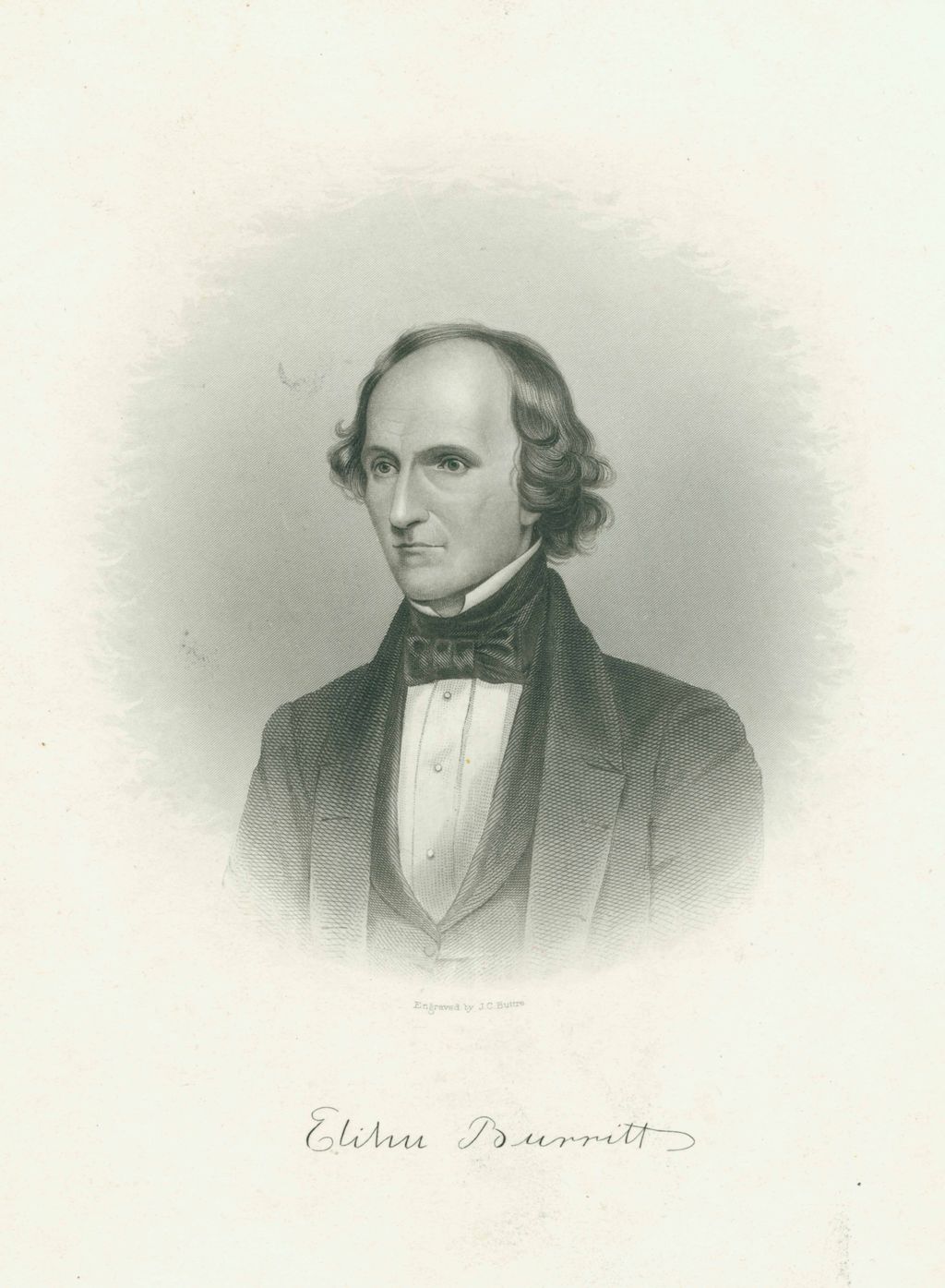
- Library Home
- Special Collections
- Burritt Collection Home
- Current page
Elihu Burritt 1810-1879
Biography
Elihu Burritt was born in New Britain, Connecticut in 1810, the youngest son among ten children. After his father's death in 1828, he apprenticed himself to a local blacksmith. With the encouragement of his older brother Elijah, Elihu studied mathematics by practicing mental exercises at the forge. Later, Burritt would develop a lifelong love of linguistics. After the financial panic of 1837 ruined his grocery business, Elihu walked to Boston seeking better economic opportunities. While in Boston, he learned about the library of the American Antiquarian Society. Burritt then walked to Worcester from Boston in order to make use of this famous  collection.
collection.
Burritt went to work for a local forge where he earned $12 per month. It was during this period when his fame as a linguist developed. He offered his services to William Lincoln of Worcester as a translator of German. Impressed by this young man's ability, Mr. Lincoln passed on his letter to Governor Edward Everett who read it before a teachers' institute. During his presentation, the governor gave Burritt the name, "Learned Blacksmith." Although he was acknowledged as a scholar by many, he preferred, as he told Henry Wadsworth Longfellow, to regard himself as a member of the working class. "I shall covet no higher human reward for any attainment I may make in literature or science, than the satisfaction of having stood in the lot of the working man."
For several years, Burritt lectured throughout New England about the joy of learning. He then turned his attention to humanitarian causes that made him famous: the abolition of slavery, the dignity of the American working man, and the cause of world peace.
In pursuit of peace, Burritt worked closely with leading legislators in the United States and Europe. In one trip he addressed 150 huge meetings in England on behalf of the League of Universal Brotherhood where thousands signed the pledge. Later, as an abolitionist in this country, Burritt traveled 10,000 miles to speak on this issue.
In 1847, Burritt took up two additional causes. He visited Ireland during the winter of the terrible potato famine. Appalled at the conditions he observed, Burritt wrote a pamphlet entitled Four Months in Skibbereen which made Americans aware of the plight of the Irish.
Burritt also joined the fight for ocean penny postage. In the 1840's, ocean postage cost an average of twenty-five cents putting it out of reach of most people. In 1872, this struggle resulted in the reduction of postage charges.
President Abraham Lincoln appointed Burritt United States consul at Birmingham, England where he served ably for several years.
Burritt was the author of over thirty-seven books and articles. In addition, he edited many books and was the editor of several serial publications.
In 1870, he retired to his birthplace where he passed the remaining years of his life. His death occurred in 1879 at the age of sixty-nine.
For additional information about this extraordinary individual, visit the Special Collections Department where a collection of books by and about Burritt as well as his manuscripts, letters, and photographs may be found.
